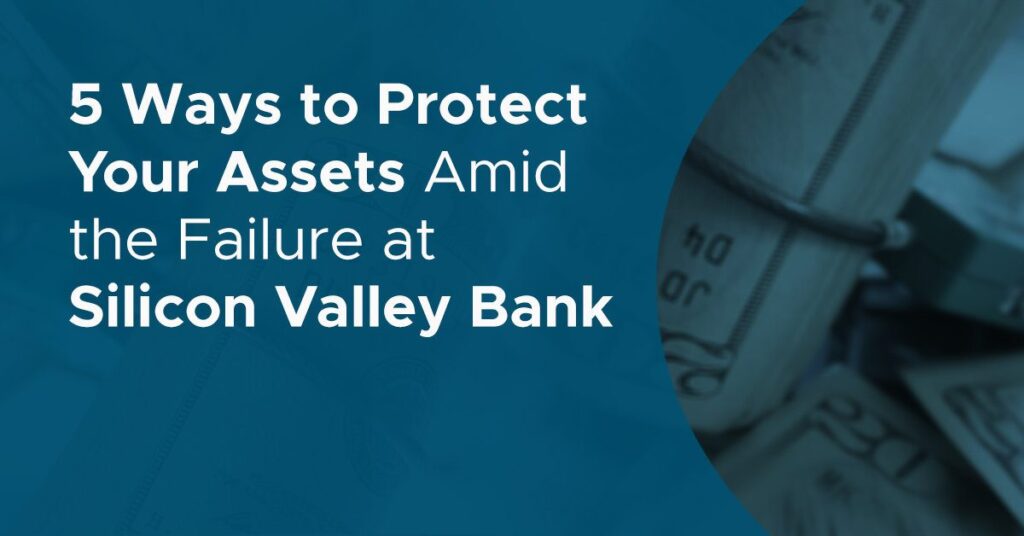
Key Point: Avoid keeping any uninsured deposits in any personal or business bank accounts.
With the failure at Silicon Valley Bank making headlines, many people are wondering what they can do to ensure that their banking assets are protected now and into the future. Below are five suggestions to explore with your financial advisor and banker to help make sure your assets are safe and secure.
- Understand what products your cash is held in at your bank. For example, assets can be held in checking and savings accounts, money market deposit accounts, and certificates of deposit, among others. Beware of “cash sweep” accounts, as your funds may be co-mingled with others at the bank.
- Ask your banker if you have any cash that is above the FDIC insurance limit of $250,000. If so, that is a signal to diversify your deposits into accounts at other institutions to ensure you don’t surpass the FDIC insurance limit. It is important to understand that depositors are not incentivized for taking the risk on uninsured deposits at banks.
- Explore how to increase your access to FDIC insurance through the titling of your accounts. A jointly held account between two people can provide $500,000 of FDIC insurance, and each business entity with its own tax identification number can provide $250,000 of FDIC insurance. Additionally, there are products designed to meet the need for high levels of FDIC insurance by spreading your deposits across multiple banks so that deposits never exceed $250,000 at any one bank.
- Consider holding assets at a third-party independent custodian, which are held in your name, are not comingled with outside assets, and are insulated from any risk to your banking partner.
- For business owners and those who oversee corporate bank accounts, understand what requirements your bank has regarding your company’s cash management if the company has a borrowing relationship with the bank. It is common when a bank lends money to a business that it requires a deposit relationship to be held at that bank.
The failure at Silicon Valley Bank has generated many questions about where to go from here. Further explore ways to protect your assets and cash-management strategies.
About Cresset
Cresset is an independent, award-winning multi-family office and private investment firm with more than $237 billion in assets under management and advisement (as of 1/1/26). Cresset serves the unique needs of entrepreneurs, CEO founders, wealth creators, executives, and partners, as well as high-net-worth and multi-generational families. Our goal is to deliver a new paradigm for wealth management, giving you time to pursue what matters to you most.
https://cressetcapital.com/disclosures/
